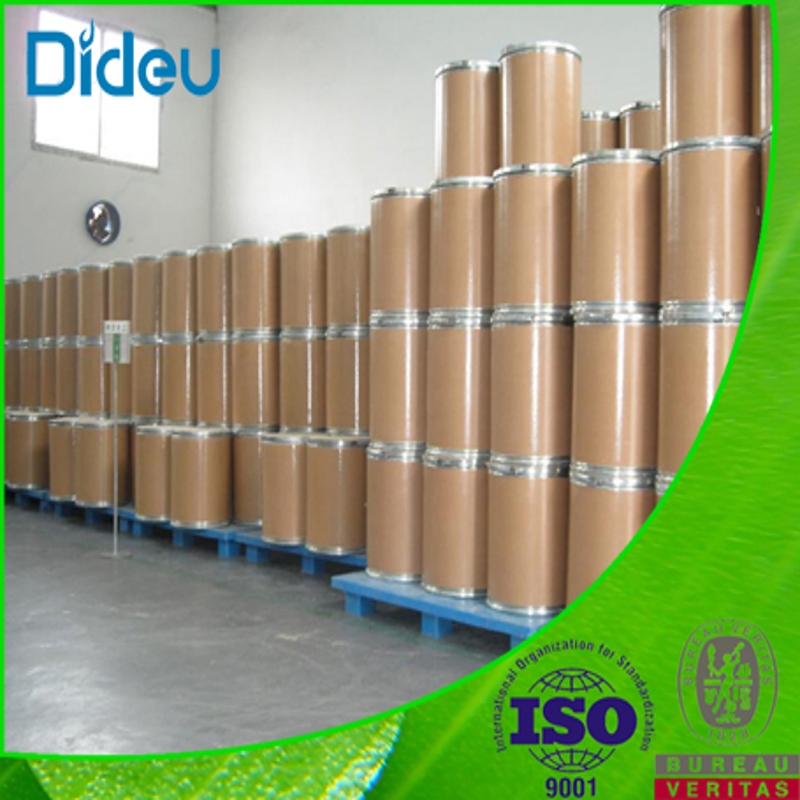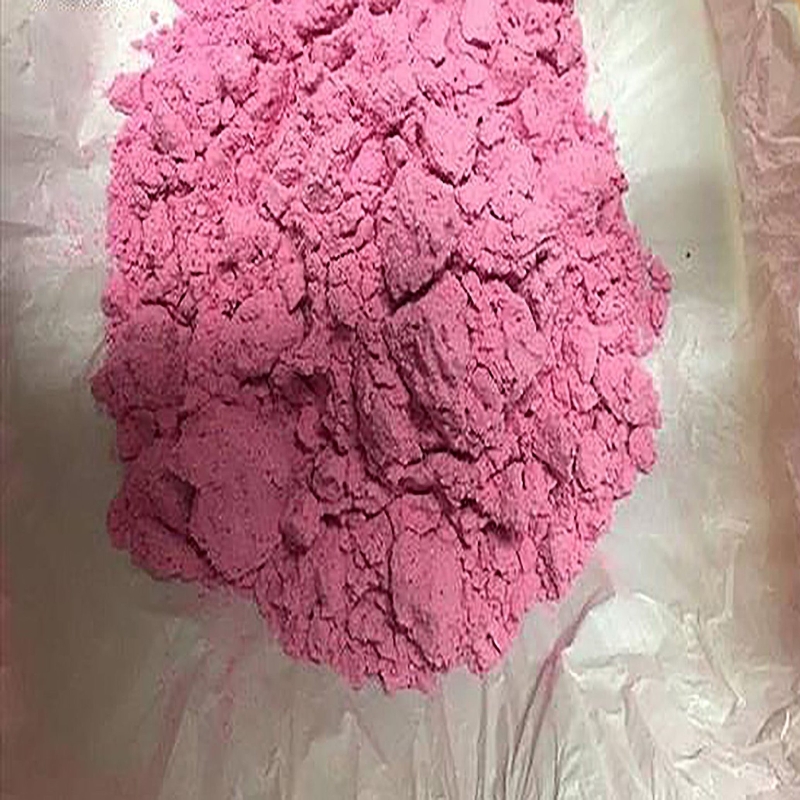-
Categories
-
Pharmaceutical Intermediates
-
Active Pharmaceutical Ingredients
-
Food Additives
- Industrial Coatings
- Agrochemicals
- Dyes and Pigments
- Surfactant
- Flavors and Fragrances
- Chemical Reagents
- Catalyst and Auxiliary
- Natural Products
- Inorganic Chemistry
-
Organic Chemistry
-
Biochemical Engineering
- Analytical Chemistry
-
Cosmetic Ingredient
- Water Treatment Chemical
-
Pharmaceutical Intermediates
Promotion
ECHEMI Mall
Wholesale
Weekly Price
Exhibition
News
-
Trade Service
Source: Medical Mission 2020 is drawing to a close.
12 innovative drugs have been approved for sale by the NMPA in 2020, according to the website of China's State Drug Administration (NMPA).
Combing through these drugs, we found that they were basically approved through the priority review process, including 9 for Chinese enterprises to develop a class of innovative drugs, including the first Chinese-made third-generation EGFR-TKI, the first Chinese-made BTK inhibitors, the first Chinese-made PARP inhibitors and so on.
this article will show you what these drugs are? What diseases are mainly used for the treatment? (sorted by approved time).
1, Kain Technologies: Hydrochloric Acid Colopaven Capsule Target/Action Mechanism: NS5A Inhibitors February 12, NMPA Announces Approval of Kain Technology Holding Subsidiary Kainger Collar Bio Corporation Class 1 Innovative Drug Colo. Vir capsules are listed, in combination with sophosphobwe, to treat genes 1, 2, 3 and 6 in adults with primary treatment or interferon for chronic hepatitis C virus (HCV) infection, which can be combined or not combined with compensation cirrhosis.
is a hepatitis C virus unstructic protein 5A (NS5A) inhibitor.
NS5A is an effective target for conquering hepatitis C, there is a interferon-sensitive decision area on the NS5A protein, and NS5A regulates the replication of HCV.
NS5A inhibitor therapy for this target greatly interferes with HCV replication by targeting the NS5A protein and directly disrupting its normal function.
according to Thein Technology website, hydrochloric acid colopivir can be inhibited by the NS5A protein to block the replication and assembly of the HCV virus, and thus achieve therapeutic results.
2, Howson Pharmaceuticals: Amethystini Target/Mechanism of Action: 3rd Generation EGFR-TKI March 31, NMPA announces conditional approval of the listing of Haussen Pharmaceuticals' Class 1 innovative drug methyndinib tablets for use in the past The disease progression occurs during or after treatment of the skin growth factor subject (EGFR) tyrosine kinase inhibitor (TKI) and is confirmed to be positive for EGFR T790M mutation in adult patients with local late stage or metastasis non-small cell lung cancer (NSCLC).
third-generation EGFR-TKI approved for listing in China, but also the second third-generation EGFR-TKI innovative drug approved for listing in the world, according to public information released by the Company.
according to an earlier press release issued by Howson Pharmaceuticals, the efficacy of Amethystini's second-line treatment in patients treated with EGFR T790M mutation-positive NSCLC is accurate: the patient's median progression-free lifetime (mPFS) is 12.2. In March, the objective remission rate (ORR) was 68.9% for patients and 93.4% for disease control (DCR), and amedinib was effective in controlling brain lesions, compared with 61.5% for patients with brain metastasis.
3, Silver Valley Pharmaceuticals: Benzoquine ammonium bromide nasal spray target/ mechanism of action: M1/M3 choline energy antagonist March 31, NMPA announced the approval of Silver Valley Pharmaceuticals Class 1 innovative drug benzodiazebenzene nasal spray to improve the symptoms of runny nose, nasal congestion, nasal itch and sneezing caused by allergic rhinitis.
According to the Official Website of Silver Valley Pharmaceuticals, benzodiamin bromide nasal spray is the company after ten years of independent development of a new highly selective M1/M3 choline energy antagonist, can mediate bronchial contraction and mucus secretion, with selective antagonists M1 and M3 subjects without affecting M2 subjectivity, low toxic side effects, safe use and so on.
the drug may relieve the symptoms of mutant rhinitis by inhibiting choline-mediated gland secretion and inflammatory responses.
4, Novartis: Sinimod Target/Mechanism of Action: S1P subject regulator On May 11, NMPA announced the approval of Novartis' Class 1 innovative drug Sinimod tablets for the treatment of adult multiple sclerosis (MS), including clinical isolation syndrome, relapse-relieving diseases and active secondary progressive diseases.
Sinimod is a new generation, selective 1-phosphate pyrethroid (S1P) regulator, which has a dual mechanism: on the one hand, it can prevent lymphocytes from entering the central nervous system of MS patients, play an anti-inflammatory role, on the other hand, it can directly play a role in the central nervous system to promote myelin regeneration to provide nerve protection.
, according to an earlier Novartis press release, Sinimod's approval was based on data from a Phase 3 study conducted in a broad group of patients with secondary progressive multiple sclerosis (SPMS).
The study showed that Sinimod significantly reduced the risk of confirming progression in disability by three months (21 percent less than placebo; 33 percent lower than placebo in patients with relapsed activity in the two years before screening), while Sinimod significantly reduced the risk of progression in disability by six months (26 percent less than placebo) and reduced the annualized recurrence rate by 55 percent.
, Sinimod also showed positive results in areas including cognitive, magnetic resonance imaging (MRI) disease activity and brain loss (brain atrophy).
5, Sanofi: Target/action mechanism for injection of Laroni enzyme-rich solution: Enzyme replacement therapy On June 3, NMPA announced approval of Sanofi's injection-based Laroni enzyme-enriched solution for long-term enzyme replacement therapy in patients with mucosal polysaccharide sepsis type I.
(MPS) is a rare genetic disease that has been included in China's First List of Rare Diseases.
, Sanofi's injection-based Laroniase-enriched solution is the world's first approved enzyme replacement therapy for mucosal polysaccharide storage type I.
, the drug has been listed as clinically in urgent need of new drugs from abroad.
mucosal polysaccharide accumulation type I. type is due to the reduced or lack of activity of lysosome α-L-Adu glycosidease, resulting in the gradual storage of mucosal polysaccharides in tissue organs from birth.
According to Sanofi's earlier press release, injectable Laroni enzyme-enriched solutions can quickly and continuously reduce urethra polysaccharides, provide clinical benefits for multiple organ systems, improve disability and mortality, and significantly improve the quality of life of patients.
long-term treatment can stabilize or reverse the clinical symptoms of patients with mucosal polysaccharia type I (lung function, 6-minute walking ability, joint activity, left room hypertrophy, swelling of liver and spleen, etc.).
early and ongoing treatment also showed positive clinical results.
6, Baiji Shenzhou: Zebtini target/mechanism of action: BTK inhibitors June 3, NMPA announced conditional approval of Baiji Shenzhou Class 1 innovative drug Zebutini capsules for use in adult suite lymphoma (MCL) patients who have received at least one treatment in the past and adult chronic lymphoblastic leukemia (CLL)/small lymphocytic lymphoma (SLL) patients who have received at least one treatment in the past.
, Zebtini is also the first Chinese-made BTK inhibitor to be approved.
Zebtini is an oral BTK small molecule inhibitor characterized by maximizing specific binding to BTK targets to minimize toxic side effects from off-target effects.
Phase 2 clinical trial in CLL patients and SLL patients in China showed that zebtinib treatment had ORR of 62.6 percent, including 3.3 percent complete remission (CR) and 59.3 percent partial remission (PR), and 22 percent of patients received partial remission with increased lymphocytes.
results of another phase 2 clinical trial in MCL patients in China showed that the total remission rate after Zebutini treatment was 83.7%, of which the total remission rate was 68.6% and the partial remission rate was 15.1%.
7, Goliath: Hydrochloric acid Ravidavi tablet target / mechanism of action: NS5A inhibitors July 31, NMPA announced the approval of Goliath 1 innovative drug Ravidavi tablets listed, combined with Danolive sodium tablets and libavirin, for the treatment of the initial treatment of the gene 1b chronic hepatitis C virus infection in non-hepatic cirrhosis adult patients.
is the next generation of generic genotype NS5A inhibitors.
, a new generation of NS3/4A protease inhibitors developed by Goliath, was approved in China in 2018 for the treatment of hepatitis C.
's completed Phase 2/3 clinical trials in China showed that after 12 weeks of treatment, the Ravidavi/Danorieve combined treatment program had a cure rate (SVR12) of 99% in patients with non-hepatic cirrhosis genotype 1, and 100% achieved SVR12 for patients with NS5A resistance mutations at baseline.
8, Beda Pharmaceuticals: Nsatinib Target/Action Mechanism: ALK Inhibitors On November 20, NMPA announced conditional approval of Beda Pharmaceuticals' Class 1 innovative drug Nsatinib capsules for the treatment of patients with local late stage or metastatic non-small cell lung cancer who had previously advanced after receiving cystaquine treatment, or who were resistant to cletatrophic kinase (ALK).
according to a Beda Pharmaceuticals press release, the approval makes Nsatinib the first Chinese-made class 1 drug to be used to treat ALC's late-stage NSCLC mutation.
in non-small cell lung cancer, about 5% to 7% of patients have APK mutations.
is a new powerful, highly selective next-generation ALC inhibitor developed by Beda Pharmaceuticals and its controlling subsidiary Xcovery Holdings.
2 clinical study data showed that the overall ORR of patients treated with ensartini was 52.6%, the disease control rate was 87.8%, the progression-free survival (PFS) was 11.2 months, the objective remission rate in the patient's skull was 71.4% and the intracranial disease control rate was 95.2%.
9, Takeda: Ranariddh single anti-injection target/action mechanism: Target inhibition plasma kinetic peptide release enzyme December 4, NMPA announced that it has approved the release of Takeda Lanadelumab injection for the treatment of hereditary angioedema (HAE), a rare genetic disease that can threaten the lives of patients.
Lanaliyu monoantigen is an all-human monoclonal antibody that binds to plasma kinetic peptide release enzymes to inhibit its protein hydrolysis activity in order to control excessive production of anti-inflammatory peptides in HAE patients.
2018, Ranariddh monoantigen was approved for sale in the United States, becoming the world's first monoclonal antibody for HAE long-term preventive therapy.
According to a press release issued earlier by Takeda, Ranariddh monoantigen has been recommended as a first-line therapy by HAE guidelines in the United States and Canada, which can target plasma peptide release enzymes that inhibit the activity of patients to prevent disease attacks.
a Phase 3 clinical study of long-term preventive treatment of hereditary angioedema showed that treatment at a 300 mg dose every 2 weeks reduced the number of HAE seizures by an average of 87 percent per month compared to the placebo group.
In addition, the results of the exploratory study showed that during the 16-week steady-state phase of the study (days 70 to 182), 77 percent of patients in the treatment group who received a 300 mg dose once every 2 weeks achieved zero seizures and 3 percent in the placebo group.
10, Hengrui Pharma: Fluorine Paley capsule target / mechanism of action: PARP inhibitors December 14, NMPA announced conditional approval of Hengrui Pharmaceuticals 1 innovative drug fluorine Pali capsules listed for the treatment of platinum-sensitive relapsed ovarian cancer, fallopian tube cancer or primary abdominal cancer patients with embryo BRCA mutation (gBRCAm) after second-line and above chemotherapy.
note that this is also the first PARP inhibitor to be approved in China and developed by a Chinese company.
fluorine palate is a PARP inhibitor developed by Hengrui Pharmaceuticals, which inhibits the DNA repair process in BRCA1/2 functional abnormal cells, induces cell cycle blocking, and thus inhibits tumor cell proliferation.
addition, fluorine palpari has the characteristics of not being easily metabolized in the human body, thus maintaining the long-term stability of the drug's ability.
studies have shown that the effectiveness of fluorine palladium in treating platinum-sensitive relapsed ovarian cancer patients with BRCA gene mutations is as high as 69.9%, which can extend the patient's progressive survival for up to 12 months.
11, Hesco Pharmaceuticals: Cyclophenol injection target/action mechanism: Short-acting GABAA subject regulator on December 14, NMPA announced that it has approved the launch of Hesco Pharmaceuticals Class 1 innovative drug cyclophenol (research and development code HSK3486) injection for sedation in endoscopy of the digestive tract.
public information shows that cyclophenol belongs to the short-acting GABAA subject regulator, is the first independent compound innovation intravenous anesthetic drug developed by Hesco Pharmaceuticals in China over a period of 8 years, and is also the first new class 1 drug approved for market by Hesco Pharmaceuticals.
According to hescodes, cyclophenol has many advantages over current treatments, including: fast recovery, less dosing, wider safety windows, less respiratory suppression, less risk reduction of more than 60 percent, fewer cardiovascular adverse events, stable circulation, less injection pain, a 1/10 incidence of propofol, less operation, and easier use.
Currently, Hesco Pharmaceuticals is also exploring the effects of cyclophenols for general anaesthetic for adult surgery, sedation during intensive care, sedation/anesthesia for various diagnostic examinations or treatments, general anaesthetic induction, and more.
12, Dongsian Pharmaceuticals: Phosphate Emitavir capsule target/ mechanism of action: NS5A inhibitors December 22, NMPA announced that it has approved Dongsian Pharmaceuticals 1 innovative drug phosphatamitavir capsules on the market, in association with Sophosebwe (an NS5B polypolyse nucleoside inhibitor) tablets for the treatment of adult gene type 1 non-hepatitis 1 non-hepatitis C.
phosphate ethythamivir is a hepatitis C virus NS5A inhibitor that inhibits viral RNA replication and viral particle assembly, and is a direct antiviral drug (DAA).
According to an earlier press release issued by Dongsian, this type of inhibitor has the advantages of having a broad genotype of hepatitis C virus inhibition, strong inhibition, non-cross-resistance to other DAA uses, good tolerance, and most support for oral administration once a day.
Phase 2 and Phase 3 clinical trial data completed in Chinese mainland showed that phosphate Emitavir was effective in patients with hepatitis C without hepatitis 1 in genotype 1, with a 99.8% continuous viral response rate over 12 weeks, and good drug safety and tolerance.
on the approval of these innovative drugs in China and look forward to the future







